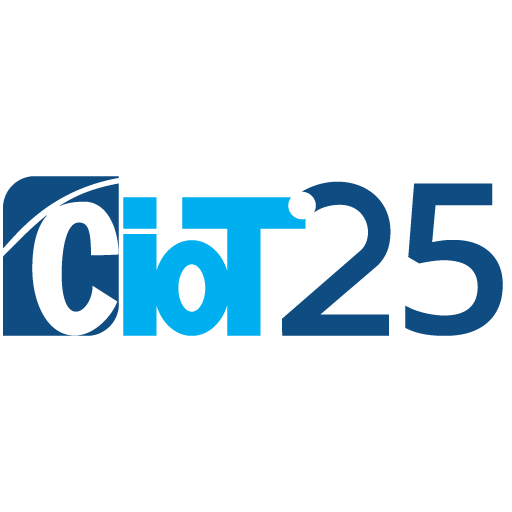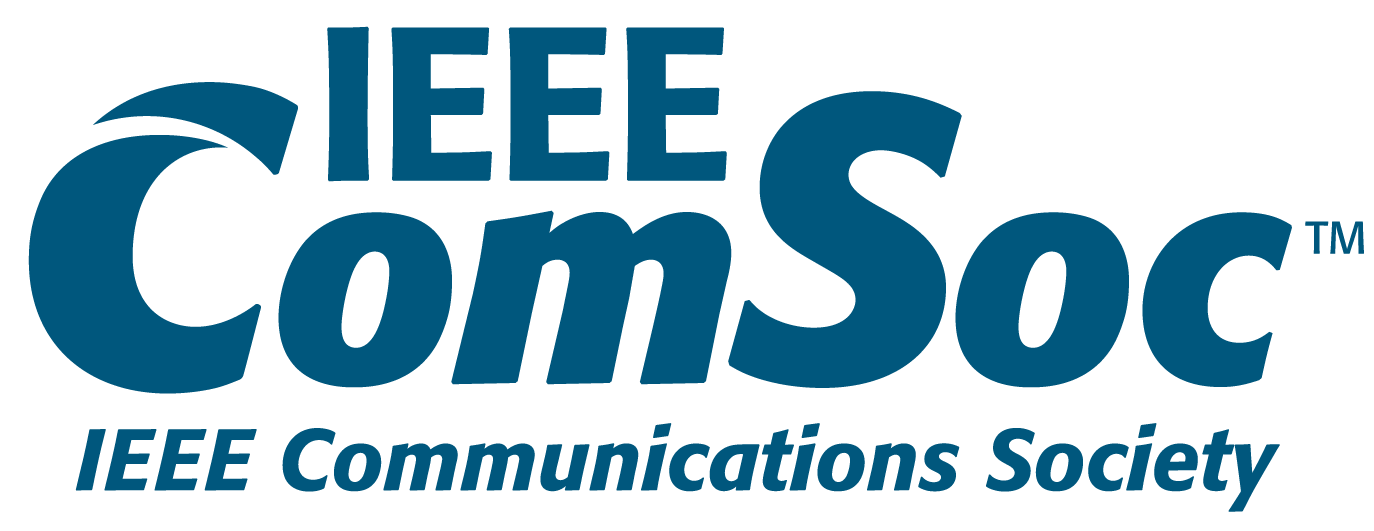CIoT 2025 Keynotes
Keynote #1
Title: Joint Computing and Communications Design for 6G: A Digital Twin and Quantum Perspective
Abstract: Recent advances in communication technologies and powerful computation platforms open opportunities to implement a wide range of breakthrough applications, especially for time sensitive services in industrial automation. In terms of communication perspective, 6G with ultra-reliable and low latency communications (URLLC) will play a vital role in the development and deployment of mission-critical applications, which require high demands on reliability and low latency communications. In addition, the development of digital twin opens new opportunities for transforming the cyber-physical systems in terms of intelligence, efficiency and flexibility. However, there are still many technical issues to be resolved to achieve high reliability and low latency with digital twin and apply this technology in practical scenarios due to the complexity of the large-scale optimization in resource allocation. Quantum machine learning (QML) and optimization (Q-opt) has emerged as a transformative tool for optimal resource allocation in wireless networks, particularly as networks evolve toward ultra-dense, high-capacity environments like 6G. This talk discusses a joint communications and computation design of 6G digital twin networks and QML/Q-Opt to support complex computation for 6G.
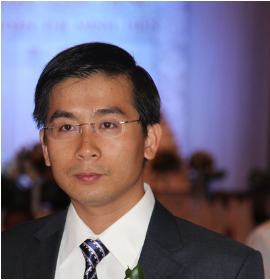
Trung Q. Duong
(Memorial University of Newfoundland, Canada)
Bio: Dr. Trung Q. Duong (IEEE Fellow, IET Fellow, CAE Fellow, EIC Fellow, and AAIA Fellow) is a Canada Excellence Research Chair and Full Professor at Memorial University of Newfoundland, Canada. He is also an adjunct professor at Queen’s University Belfast, UK and a visiting professor under eminent scholar program at Kyung Hee University, South Korea. His current research interests include quantum optimisation and machine learning in wireless communications. He is an author/co-author of 600+ publications with 22,500+ citations and h-index 81. He has served as an Editor for many reputable IEEE journals (IEEE Trans on Wireless Communications, IEEE Trans on Communications, IEEE Trans on Vehicular Technology, IEEE Communications Surveys & Tutorials, IEEE Communications Letters, and IEEE Wireless Communications Letters) and has been awarded best paper awards in many flagship conferences including IEEE ICC 2014, IEEE GLOBECOM 2016, 2019, and 2022. He was the only UK-based researcher awarded both the Research Fellowship and Research Chair from the Royal Academy of Engineering. In 2017, he was awarded the Newton Prize from the UK government. He is currently the Editor-in-Chief of IEEE Communications Surveys & Tutorials and an IEEE ComSoc Distinguished Lecturer. He is a fellow of the Institute of Electrical and Electronics Engineers (IEEE), the Institution of Engineering and Technology (IET), the Canadian Academy of Engineering (CAE), the Engineering Institute of Canada (EIC), and the Asia-Pacific Artificial Intelligence Association (AAIA)
Keynote #2
Title: Adversarial Resilience in Brain-Computer Interfaces: From Vulnerabilities to Robust AI Models
Abstract: Brain-Computer Interfaces (BCIs) are reshaping the future of neurotechnology, enabling seamless interaction between the human brain and external devices. However, this promising field faces significant security challenges, particularly from adversarial machine learning techniques that exploit vulnerabilities in AI models. In this keynote, I will explore the evolving threat landscape surrounding BCI systems, with a focus on adversarial attacks that can compromise data integrity and user safety. I will discuss the limitations of traditional neural networks and highlight the potential of advanced architectures—such as Capsule Networks and Attention-Based Models—in improving resilience against such threats. The talk will also present recent findings on adversarial robustness in BCI applications and outline emerging defense strategies, including adversarial training and GAN-based augmentation. By bridging insights from computer security, neuroscience, and AI, this session aims to inspire interdisciplinary approaches to building secure and trustworthy BCI technologies.
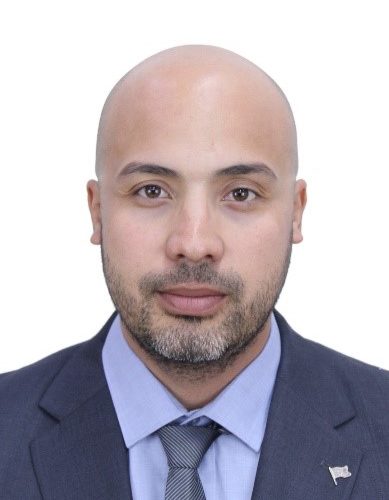
Prof. Chaker Abdelaziz Kerrache
(Amar Telidji University of Laghouat, Algeria)
Bio: Chaker Abdelaziz Kerrache is a Full Professor at Amar Telidji University of Laghouat, Algeria, where he serves as the Director of the University Business Incubator and Head of the Laboratory of Computer Science and Mathematics (LIM). He obtained his M.Sc. and Ph.D. degrees in Computer Science from the University of Laghouat in 2012 and 2017, respectively. He is also an Associate Professor in the Department of Computer Science. In addition to his academic and administrative roles, he is a member of the National Committee for Digitization. He was recognized among the world’s top 2% scientists in both 2023 and 2024. His research interests include trust and risk management, secure multi-hop communications, Brain-Computer Interfaces (BCI), Named Data Networking (NDN), and Unmanned Aerial Vehicles (UAVs).
Keynote #3
Title: From Visibility to Resilience: Securing OT and Critical Infrastructure Against Emerging Threats
Abstract: Operational Technology (OT) environments underpin essential services, yet they are increasingly targeted by adversaries seeking disruption, extortion, and pre-positioning. Unlike IT, where confidentiality dominates, OT risk is about availability, integrity, and safety. This keynote explores the latest public guidance from the UK NCSC, CISA, NIST, and IEC on how operators can build resilience by creating a definitive view of their OT architecture and applying outcome-based frameworks such as the Cyber Assessment Framework (CAF v4.0), ISA/IEC 62443, and NIST SP 800-82. Using recent case studies, we will examine emerging threats such as living-off-the-land (LOTL), ransomware’s industrial pivot, and supply-chain exposures and then translate them into practical, evidence-based security strategies.
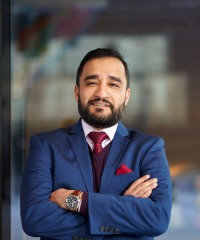
Asim Khwaja
(Cyber Risk & Policy, UK Government)
Bio: Asim Khwaja, MSc (Oxford), CISSP, CISM, CISA, CRISC is a cybersecurity and risk leader focused on operational resilience for Critical National Infrastructure (CNI). He currently leads cyber policy and risk within UK Government, supporting resilience uplift across the nation. Asim has delivered digital transformation in Financial Services CNI and aviation cybersecurity after earlier roles spanning fraud, cyber financial crime, Anti-Money Laundering (AML) and organised-crime investigations. Asim specialises in translating regulations, frameworks & public guidance into auditable, operational controls for Operators of Essential Services (OES).
Speaking in personal capacity, with all views personal, not representing any organisation.
